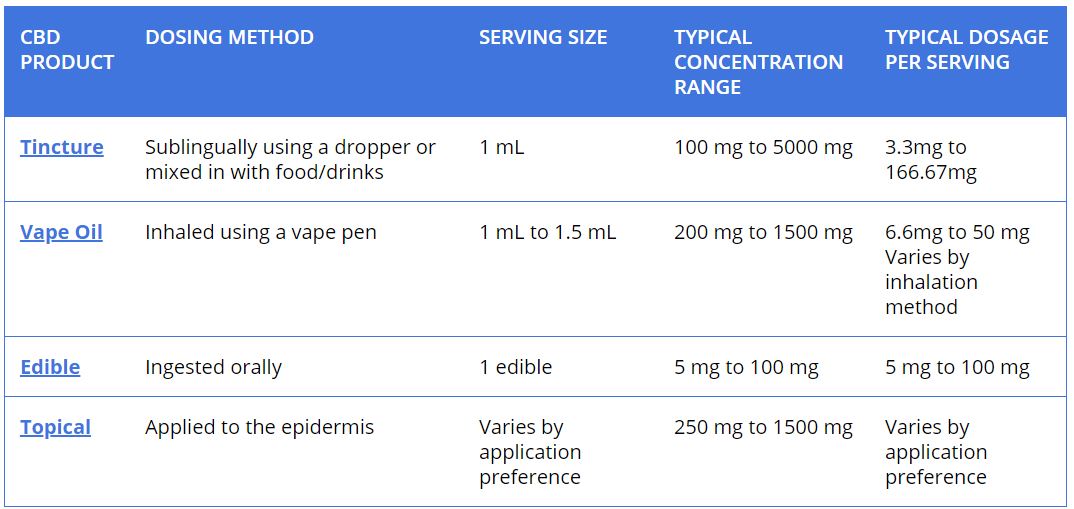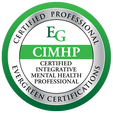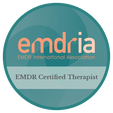Click [HERE] to purchase high-quality organic CBD products.
I can personally recommend the delicious, healing CBD tinctures, body balms, and chocolate, which I myself use.
What is CBD or hemp (extract) oil and what are its benefits?
|
|
|
CBD stands for cannabidiol, which is 1 of 104 therapeutic components called cannabinoids found in all cannabis plants. Cannabis is a genus that includes several species, including those high in the cannabinoid THC (tetrahydrocannibinol), which is also called marijuana and gets you high, those high in CBD (traditionally called hemp), and those with a balance of both THC and CBD. Cannabis plants high in THC have been illegal in most states for many years, though that is changing recently, with 33 states as of June, 2019 approving the use of medical marijuana and 11 approving recreational use. Most of these states allow the growing of one's own plants at home. As of 2018, the federal government decriminalized plants high in CBD and low in THC (with less than 0.3% THC content), allowing hemp to be bought/sold and grown commercially in any state which does not prevent it. This has led to a boom in hemp extract oil (naturally high in CBD) sales, which are projected to continue to grow up to $22 billion or more annually.
CBD or hemp extract oil is distinct from hemp oil or hemp seed oil, which is a food product sold in grocery and health food stores which is high in omega 3s but which contains very little cannabinoids, including CBD or THC. Many companies may be mislabeling CBD content or marketing hemp seed oil as CBD oil, which is basically fraud, so beware.
Cannabinoids affect certain receptors in the brain and nervous system that influence several different processes, including how we experience pain, how our immune systems activate, how we experience stress and whether it becomes anxiety and/or depression, even how the body controls itself via the nervous system, muscles, etc. Though cannabis--specifically strains high in THC--has traditionally been known as the "weed that gets you high," more recently, the great benefits of CBD have become more recognized and popular.
Research on the benefits of CBD is still being conducted (and much more needs to be done), though the following benefits have been identified so far:
For most people, CBD has no or minimal side effects, but their may be a few, such as dry mouth, lightheadedness, drowsiness/sleepiness, lower blood pressure, and possible headaches (though these may happen most likely because the oil you're using is a poor quality product containing solvents or other additives). Be sure that the product you use is organic and ideally has a COA that shows not only CBD content, but also pesticide, solvent, and heavy metal testing.
CBD or hemp extract oil is distinct from hemp oil or hemp seed oil, which is a food product sold in grocery and health food stores which is high in omega 3s but which contains very little cannabinoids, including CBD or THC. Many companies may be mislabeling CBD content or marketing hemp seed oil as CBD oil, which is basically fraud, so beware.
Cannabinoids affect certain receptors in the brain and nervous system that influence several different processes, including how we experience pain, how our immune systems activate, how we experience stress and whether it becomes anxiety and/or depression, even how the body controls itself via the nervous system, muscles, etc. Though cannabis--specifically strains high in THC--has traditionally been known as the "weed that gets you high," more recently, the great benefits of CBD have become more recognized and popular.
Research on the benefits of CBD is still being conducted (and much more needs to be done), though the following benefits have been identified so far:
- It's anti-inflammatory.
- It enhances the brain's ability to use serotonin.
- It's neuroprotective (meaning it lowers the risk of neurodegenerative diseases as well as mental illness).
- It actually can improve mental health, including anxiety (anxiolytic), PTSD symptoms, OCD, ADHD, & depression (anti-depressant), psychosis and schizophrenia (anti-psychotic), and addiction (reducing opioid and alcohol dependence, cravings and withdrawal symptoms).
- It's analgesic (pain-relieving), improving neuropathic pain from injury and arthritis and can be rubbed directly into areas of pain.
- It can improve symptoms of epilepsy by reducing severity and frequency of seizures (anti-convulsant).
- It can help reduce nausea and vomiting (anti-emetic).
- It may be able to help reverse cancer (anti-tumoral).
- It can enhance feelings of well-being and relaxation, without getting you high like marijuana.
- It can improve the depth and quality of sleep by increasing deep sleep and reducing REM sleep (especially beneficial for those with bad dreams).
- It can improve skin issues such as brown spots, wrinkles, acne, and psoriasis.
- It may help reverse the following diseases: Multiple Sclerosis (MS), Amyotropic Lateral Sclerosis (ALS, Lou Gehrig's Disease), Alzheimer's, Rheumatoid Arthritis (RA), Diabetes, High Blood Pressure/Heart Disease, Irritable Bowel Syndrome (IBS), Lupus, Osteoporosis
For most people, CBD has no or minimal side effects, but their may be a few, such as dry mouth, lightheadedness, drowsiness/sleepiness, lower blood pressure, and possible headaches (though these may happen most likely because the oil you're using is a poor quality product containing solvents or other additives). Be sure that the product you use is organic and ideally has a COA that shows not only CBD content, but also pesticide, solvent, and heavy metal testing.
Is CBD oil legal, and will using it make me fail a drug test?
The answer to the first question is generally, yes, though some states are more friendly than others to hemp. And the answer to the second question is generally, no.
The United States (federal government) has made as of 2018 the commercial growing and sale of the hemp version of cannabis potentially legal in all states, provided the THC content does not exceed 0.3%. So, as long as the CBD is coming from hemp cannabis rather than marijuana cannabis, it should be legal. However, some states are muddying the waters by trying to prosecute hemp as being virtually the same as marijuana (since both plants are cannabis and difficult to tell apart without testing their cannabinoid content). North Carolina is a hemp-friendly state, as it looks to replace the dying tobacco industry with a much more profitable--and fortunately much more healthy--successor.
The answer to the second question is generally, no. As long as the THC content of CBD oil is less than 0.3%, a person should not normally fail a drug test. However, this may be influenced by how much body fat the person has and how close to 0.3% the THC content is. The products I'm recommending, for example, have negligible amounts of THC--around .03-.04%--which should not be a problem. These products come with a downloadable Certificate of Analysis (COA), recommended when purchasing quality cannabis products, where you can verify the actual content by mg and by percentage.
The United States (federal government) has made as of 2018 the commercial growing and sale of the hemp version of cannabis potentially legal in all states, provided the THC content does not exceed 0.3%. So, as long as the CBD is coming from hemp cannabis rather than marijuana cannabis, it should be legal. However, some states are muddying the waters by trying to prosecute hemp as being virtually the same as marijuana (since both plants are cannabis and difficult to tell apart without testing their cannabinoid content). North Carolina is a hemp-friendly state, as it looks to replace the dying tobacco industry with a much more profitable--and fortunately much more healthy--successor.
The answer to the second question is generally, no. As long as the THC content of CBD oil is less than 0.3%, a person should not normally fail a drug test. However, this may be influenced by how much body fat the person has and how close to 0.3% the THC content is. The products I'm recommending, for example, have negligible amounts of THC--around .03-.04%--which should not be a problem. These products come with a downloadable Certificate of Analysis (COA), recommended when purchasing quality cannabis products, where you can verify the actual content by mg and by percentage.
What is the proper "dose" or serving of CBD for my situation?
|
|
|
There is a lot of discussion about this topic, with many articles and authorities fudging and resisting getting specific, saying "it depends on the person and the situation." The truth is, different conditions may be improved better with different amounts of CBD, and different people react to CBD in different ways. That being said, there are a few helpful considerations I've found that may be helpful.
According to one source: "Generally, you should start small with your CBD oil dosage and you can slowly move up from there. Most of the frequent users of CBD may find that a dose from 10 to 20 mg taken 1-2 times daily should be enough to provide you with an efficient effect of Cannabidiol. Yet a lot of people out there take a different direction and take CBD as little as 1 to 3 mg per day. Most of the patients simply take one dose in the morning and another dose 12 hours later. When using CBD oil for pain, many patients look for a “sweet spot” somewhere between 10 to 20 mg, taken 1-2 times a day or perhaps, up to three times a day when the pain is extremely severe. When it comes to using CBD oil for treating depression, anxiety, or other psychological disorders, smaller doses are required, typically less than 2 mg each. With that said, a lot of people have taken several doses of CBD oil in excess of the 30 mg dose per day and yet they didn’t notice any adverse side effects. As mentioned, it’s merely a matter of listening to what your body needs and exercising due diligence."
This is a chart that is recommended by one source to conceptualize a starting dose, depending on your body weight as well as whether you want Mild, Moderate, or Stronger effects:
According to one source: "Generally, you should start small with your CBD oil dosage and you can slowly move up from there. Most of the frequent users of CBD may find that a dose from 10 to 20 mg taken 1-2 times daily should be enough to provide you with an efficient effect of Cannabidiol. Yet a lot of people out there take a different direction and take CBD as little as 1 to 3 mg per day. Most of the patients simply take one dose in the morning and another dose 12 hours later. When using CBD oil for pain, many patients look for a “sweet spot” somewhere between 10 to 20 mg, taken 1-2 times a day or perhaps, up to three times a day when the pain is extremely severe. When it comes to using CBD oil for treating depression, anxiety, or other psychological disorders, smaller doses are required, typically less than 2 mg each. With that said, a lot of people have taken several doses of CBD oil in excess of the 30 mg dose per day and yet they didn’t notice any adverse side effects. As mentioned, it’s merely a matter of listening to what your body needs and exercising due diligence."
This is a chart that is recommended by one source to conceptualize a starting dose, depending on your body weight as well as whether you want Mild, Moderate, or Stronger effects:
What forms of CBD are there and what are the differences?
The purest, simplest and some argue safest and most effective form of CBD is as oil, usually in a dropper bottle and often called a tincture. This is a hemp oil extract that is higher in CBD than other cannabinoids such as THC which is usually contained in a carrier base such as coconut/MCT oil. When using this form, it is recommended to put the oil via dropper under the tongue and to hold it there for 60-90 seconds, to maximize the absorption via the blood vessels of the mouth, bypassing the digestive system and optimizing the absorption and bioavailability of the oil. CBD oil tinctures often come in 30ml (1 oz) bottles, where 1ml is a recommended serving. The bottles are often labeled as 300mg or 500mg or higher total amounts of CBD or hemp oil extract per bottle. For example, if the bottle is 30ml (1 oz) and labeled as 300mg hemp oil or CBD extract per bottle, then each 1ml dropperful would be 10mg of CBD. If the 30ml bottle is labeled as 500mg hemp oil/CBD extract, then each 1ml dropperful would be 16.67mg of CBD. If you want to measure your CBD by drop, there are 20 drops in a 1ml dropperful, so with the 300mg bottle at 10mg per dropperful, each drop would be 0.5mg of CBD.
Other forms of CBD include edibles such as gummies, vapes, inhalers, capsules, and creams or ointments...and of course, you can smoke it, though I don't recommend that method, as it damages your lungs and causes cancer. It's important to note that edibles and capsules will take longer to take effect and will be less bioavailable due to being broken down by the digestive system. Inhalers and vapes are recommended for those who have severe anxiety such as panic attacks, where the most rapid effects are desired. Creams and ointments can be applied directly to the skin (topically) in areas where there is pain. Here is a chart from the same source as the previous chart that shows more information about the different types of CBD and dosages:
Other forms of CBD include edibles such as gummies, vapes, inhalers, capsules, and creams or ointments...and of course, you can smoke it, though I don't recommend that method, as it damages your lungs and causes cancer. It's important to note that edibles and capsules will take longer to take effect and will be less bioavailable due to being broken down by the digestive system. Inhalers and vapes are recommended for those who have severe anxiety such as panic attacks, where the most rapid effects are desired. Creams and ointments can be applied directly to the skin (topically) in areas where there is pain. Here is a chart from the same source as the previous chart that shows more information about the different types of CBD and dosages:
Conclusion: How should I get started?
If you're totally new to CBD/cannabis, I recommend you start with CBD oil in tincture form, putting it under your tongue for 60 seconds. Start with a small dose, perhaps 1/2 to 1 dropper of a 300mg concentration (5-10mg) and try it 1x or 2x per day for a few days or a week to see if you notice benefits. If not, titrate up by 1/2 a dropper until you do. Occasionally, some people have felt an undesired sedative effect, so if that happens take less. For those taking it to enhance sleep, you obviously want this effect, so take it an hour before bed, ideally with other relaxing herbs such as chamomile or sleepy time tea and valerian root. You can also experiment with CBD cream/ointment for topical application directly to pain areas, as well as gentle edibles like gummies. If you have panic attacks, you might try getting an inhaler version or a vape. No one has ever died from a cannabis overdose, and it is very hard to take too much CBD, which again does not have the "getting high" effects of cannabis that is high in THC. Trust Mother Nature, as she will take care of you naturally and holistically, without the negative side effects of man-made pharmaceuticals.







